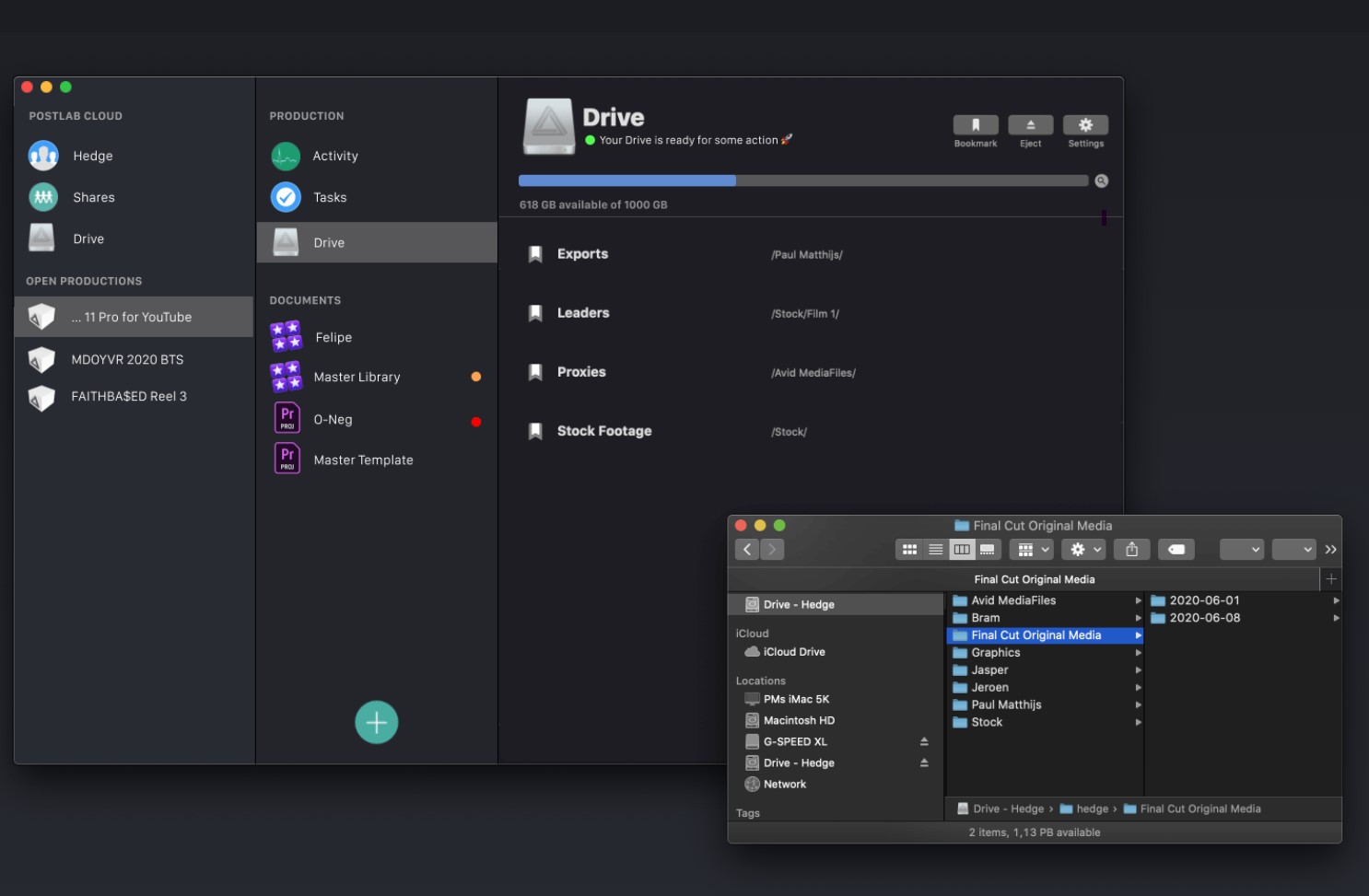LucidLink and Hedge form cloud storage partnership
Pair are launching a video-oriented cloud shared storage system.

LucidLink has announced a new partnership with Hedge, maker of smart backup software for filmmakers to launch a new cloud storage service.
Postlab Drive is a shared cloud storage service that promises to let video editors manipulate cloud-stored media files as if they were present on a local drive.
California-based LucidLink was founded in 2016 with the aim of helping cloud drives function more like local storage systems. To do that, the company built a platform that streams data directly from the cloud, doing away with any need to sync or download files.
- Check out our best free cloud storage choices
- This is the best photo storage around today
- And here's our pick of the best business cloud storage
That platform is known as LucidLink Filespaces, and it essentially enables businesses to access and manipulate cloud-stored files as if they were located on a network-attached storage (NAS) drive. The same encrypted file system and technology behind Filespaces will also be used in the new Postlab Drive software.
Postlab Drive
Originating in the Dutch TV sector, Hedge also launched its first product in 2016. The platform now has several video-focused data workflow products that facilitate rapid file transfers and simultaneous backups.
According to LucidLink Business Development Director, Scott Miller, the companies have been discussing a potential partnership for the past few years. “It’s really exciting to see the essences of those talks coming to fruition,” he said, adding that Postlab “offers a revolutionary way for media to be accessed.”
Hedge CEO, Paul Matthijs Lombert, hopes that the partnership will make life easier for media managers and editors working in the video space. He claims that Postlab Drive is now the easiest way to manage media in the cloud because it creates a “seamless remote editing experience”.
Sign up to the TechRadar Pro newsletter to get all the top news, opinion, features and guidance your business needs to succeed!
It’s true that few, if any, of the best file transfer solutions currently on the market enable users to edit large video files without first syncing or downloading them to a local storage system. This could, therefore, be a real game-changer for an industry dealing with the sudden pressure to transition to remote working at scale.
- Here are the best cloud storage services you can find today